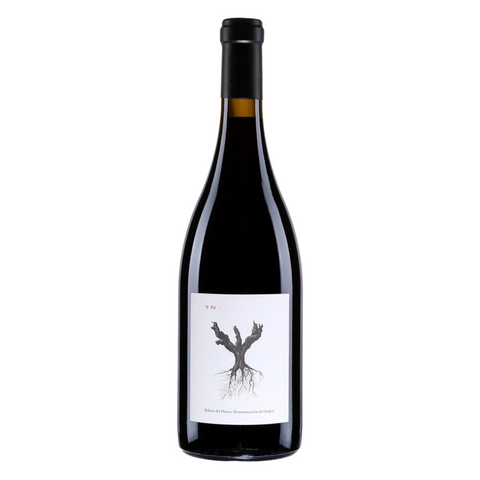
2022 Dominio de Pingus "Psi", Ribera del Duero, Castilla y León, Spain
Ribera del Duero "PSI" is an aromatic red wine with the expression of plums and tobacco, with hints of cedar and vanilla in the background. An elegant attack is followed by notes of black fruits, black berries, and spices, mellow tannins with great acidity in the finish.
ABOUT THIS WINE
While the goal for Pingus is to test the upper limits of Tinto Fino, the goal for Ψ Psi is subtler but perhaps just as profound: to capture the soul of Ribera del Duero. The primary concept starts with the old, head-pruned vineyards. Old vineyards in Spain often contain a mix of varieties and Ψ Psi reflects the breadth of this heritage, incorporating up to 10% Garnacha plus small quantities of other varieties including whites like Albillo.
In the winery, the duo eschews many of the modern techniques used in the region today. They focus on simple, traditional winemaking that earlier generations would still recognize. The partners employ long, gentle macerations to get the most harmonious extraction possible from their grapes. And they are using a relaxed élévage in a mix of large and small oak casks and cement tanks, with virtually no new wood.
ABOUT THIS PRODUCER
Having established Pingus as a new benchmark for greatness in Spanish wine, Peter Sisseck has embarked on a new quest: to produce a wine that captures the soul of Ribera del Duero. And he is making that vision a reality by harnessing the passion of the region’s growers who, for far too long, lacked the tools, capital, and vision to make wine that is truly “theirs.” And thus, Ψ Psi was born.
He always felt that, though the region’s old vineyards had enormous potential, the median quality of local farming was poor. Historically, growers had been paid by the ton. In other words, because they were paid for quantity and not quality, they had little incentive to cut yields. And the excessive use of chemicals in this region gave substance to Claude Bourgignon’s vivid description of vineyard soils having less microbial life than the Sahara Desert.
Much work would be needed to restore the soil and improve viticultural practices, but Peter realized that buying the oldest vineyards was unlikely, given the growers’ deep attachment to their land. But what if he could involve the growers in a cooperative project, to produce better, more natural grapes? And, at the same time, he could incentivize them to preserve their old-clone, labor-intensive, head-pruned vineyards?
By providing economic incentives, and by actively engaging the growers’ passion for their land, he could achieve two goals: to obtain the kind of healthy, balanced fruit he desired, while also improving the health of the vineyards—and the wallets of their owners.
Details:
| Grape(s) | Tempranillo, Garnacha |
| Farming | Sustainable |
